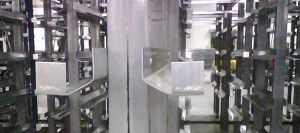

The time to prioritize human health over national economic health is now. Overlooking air pollution with its health consequences, for short-term economic benefits, is not an option. While millions of people around the world already breathe unhealthy air, climate change threatens to make this problem even worse unless we act to stem the problem on a broader scale. The study estimated that if today’s fossil-fuel heavy mix of energy sources was deployed to meet extra energy demand for air conditioning, it could cause nearly 1,000 deaths each year from worsened air pollution.Īnd that’s in just one region of one country. That work found that climate change and increased energy demand could worsen summer air pollution from fine particulate matter (PM2.5) by about 60 percent and ground level smog by about 16 percent, compared to current pollution levels. For example, a team of researchers published a study in 2018 analyzing the energy demand, air pollution, and health impacts of mid-century heat waves across the eastern U.S.

MIT Technology Review OctoEmerging Research to Understand Health Threatsīecause this problem has potentially far-reaching consequences, scientists are increasingly working to understand it in more detail. That threatens our power grids and promises to make climate change far worse. The number of air-conditioning units installed worldwide could triple by midcentury, pushing the total toward 6 billion. As the climate crisis accelerates, it’s more important than ever to understand how a warmer world could worsen existing health risks from air pollution, if we don’t take appropriate actions to harness renewable energy for our growing needs for electricity. The World Health Organization estimates that more than 90% of the world’s population is exposed to dangerous levels of air pollution, and that 3.1 million people die early each year due to chronic exposure to polluted air. But the electricity sources used to power air conditioners, such as coal, can also contribute to outdoor air pollution from fine particulate matter and ozone smog. It’s a proven strategy to reduce indoor temperatures and reduce the stress that hot temperatures place on our bodies. Climate Change-Fueled Heat Spikes Demand for CoolingĪir conditioning saves lives. Understanding these complex effects of climate change on public health is an urgent task, and new work is underway to better describe the problem at a local level in India. But depending on how we power that electricity, using dangerous fossil fuels or cleaner and renewable energy sources, we may also worsen the burden of dangerous air pollution. With global temperatures are soaring because of climate change, demand for electricity to keep people cool and safe from sweltering heat is critical.


 0 kommentar(er)
0 kommentar(er)
